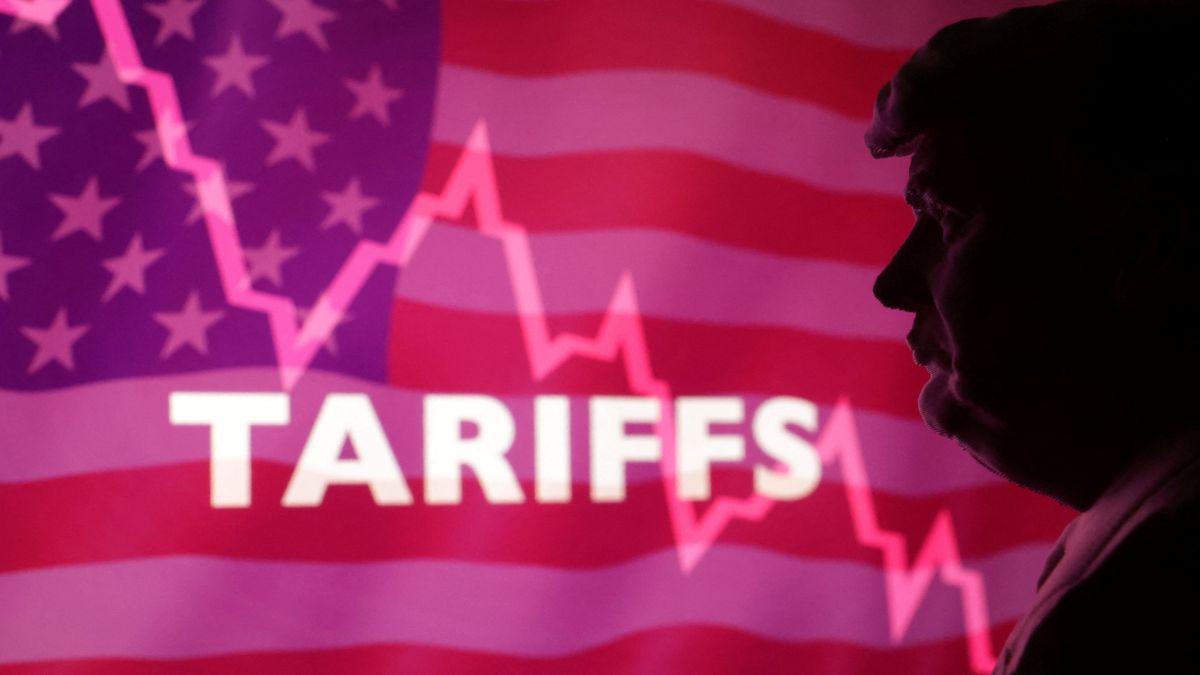In a bold move to make America great, US President Donald Trump announced the imposition of a 10% duty on imports from nearly all countries, along with additional punitive tariffs targeting nations he considers trade offenders, including Japan and members of the European Union.
According to The Atlantic, citing experts, this shift away from global trade could have significant repercussions for American families, companies, and investors. The new tariff regime not only threatens the economic stability of these groups but also undermines a key pillar of American global power, potentially isolating the country at a time when other nations are poised to capitalise on this vacuum.
With the addition of these new tariffs, China’s average tariff rate has now approached 70%, marking a substantial increase from previous levels.
Describing the tariffs as payback, Trump said, “Foreign cheaters have ransacked our factories, and foreign scavengers have torn apart our once beautiful American dream.”
“Our country and its taxpayers have been ripped off for more than 50 years, but it is not going to happen anymore,” he added.
Trump’s tariffs are the culmination of a decades-long shift in political perceptions in the United States, in which trade has gone from an unalloyed good to the source of all ills.
Historically, the US aimed to reduce trade barriers and promote global markets, exemplified by agreements like the North American Free Trade Agreement and support for the World Trade Organization. This global trading system lowered goods costs, benefiting consumers and companies in wealthier nations, while integrating poorer countries like China into international supply chains, creating jobs and reducing poverty.
Impact Shorts
More ShortsTrade once served as the foundation of the American-led international order. However, as supply chains expanded to cut costs, many factories disappeared from the US heartland. This loss fueled a belief among some Americans that trade was to blame for rising inequality and limited mobility, a sentiment that populist politicians have capitalised on, reported The Atlantic
Moreover, trade’s strategic promise fell short. Experts had assured Americans that economic ties would foster peace with China and Russia. Instead, these nations have emerged as authoritarian rivals.
The Trump team sold its tariffs programme as a bid to set things straight by forcing America’s lost factories to return home.
“You’re going to see the greatest resurgence of factory building and factory production in America,” The Atlantic quoted US Commerce Secretary Howard Lutnick as saying in defence of the tariffs.
Trump is “changing the way people think about production in America,” Lutnick added.
According to The Atlantic report, the outcomes of the administration’s tariff strategy may not align with expectations. While some foreign companies might establish US factories to retain access to this key market, many others are too small or too embedded in existing supply chains to do so.
Moreover, it’s unclear where the workforce will come from to assemble iPhones or produce car parts, especially given the president’s stance against large-scale immigration. US factories are already struggling to find workers, with hundreds of thousands of manufacturing vacancies, added the report.
Trump has often criticised other countries for unfair trade practices, such as currency manipulation and strict product standards. However, the tariff regime may highlight a key economic truth: certain goods are produced more cheaply and efficiently abroad due to established expertise.
As a result, Trump’s policies are likely to lead to higher prices for American consumers, whether goods are produced domestically at inflated costs or imported with hefty tariffs, reported The Atlantic.
Estimates suggest that tariffs could drive the price of a premium iPhone to $2,300, a scenario the Trump administration appears to accept.
“Access to cheap goods is not the essence of the American dream,” The Atlantic quoted US Treasury Secretary Scott Bessent as saying in March.
But when consumers buy fewer products at higher prices, companies produce and sell less and hire fewer workers, and growth slows.
As French President Emmanuel Macron put it, Trump’s policy will make Americans “weaker and poorer.”
A global trade war will impact more than just Americans. Other countries are likely to retaliate against US tariffs. China has already imposed an additional 34 percent tariff on US imports, while the EU is also considering its own measures. The once-prosperous global trade landscape may shift to one of economic competition.
Other nations accepted US leadership as a promoter of global economic progress, but Trump’s approach undermines that role. He may offer to reduce tariffs for countries that negotiate with him, viewing it as a display of strength, as seen with his willingness to negotiate with China over TikTok. However, the erratic nature of these policies will diminish American standing internationally, according to The Atlantic report.
This shift could allow Beijing to position itself as a responsible global leader. Following Trump’s announcement, ministers from China, Japan, and South Korea pledged to promote global trade, implicitly criticicing the US.
While the US remains the world’s largest economy, it is not the only player. A Chinese state broadcaster highlighted that US tariffs could isolate America from free trade, as its partners deepen their economic ties independently.
Tariffs won’t earn respect for the US, they may simply prompt others to move on without it, added the report.
With inputs from agencies
)